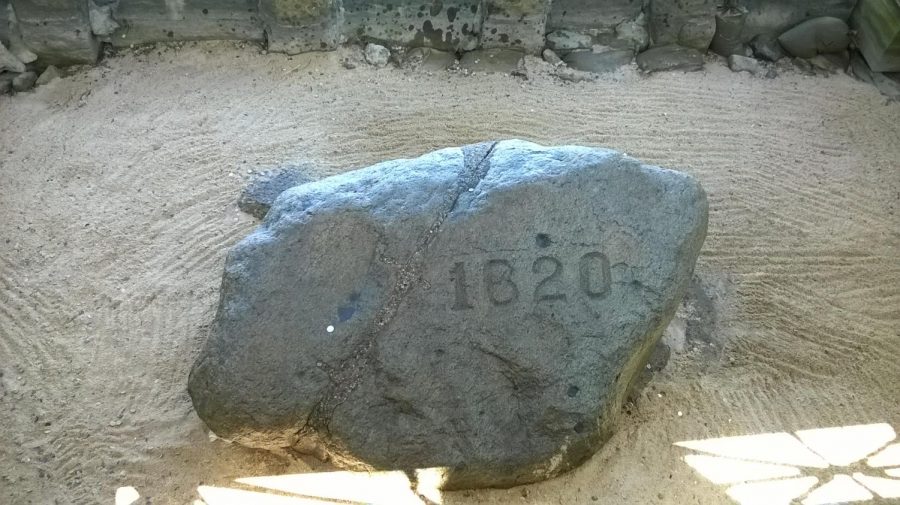This November marks the 400th anniversary of the Pilgrims landing on Plymouth Rock. Amidst a pandemic, a chaotic election and social disunity, this remarkable anniversary has hardly been noticed. But it is truly momentous, since it marks the origins of our story as a country.
In the year 1620, 102 English men and women, boys and girls, gathered together to board a small wooden ship, the Mayflower, bound for America — to an unknown wilderness. About half of them made the trek for the sake of worshipping freely. Governor William Bradford, who served as the second governor of Plymouth Colony, wrote in his Diary: “All great and honorable actions are accompanied with great difficulties, and both must be enterprised and overcome with answerable courage.”
Their courage to embark on such a journey set a common theme in American history, whether it was to form a democratic republic in a world where monarchies predominated, to fight a war to end slavery, to forge ahead in the wild frontier, to combat the Great Depression, to fight Nazi facism and Communist totalitarianism, to struggle to expand civil rights for all Americans or to counter terrorism.
It all started with the Pilgrims. They were of the middle class, and most of them were just farmers. When they arrived, they were tired and sick. Nearly half of them died that first winter 400 years ago. But they had strength in their faith, and they were humble. Their goal was not wealth or power. It was for the freedom to practice their religion.
President John F. Kennedy called America a nation of immigrants and noted that the foundations of the US were built on the “enduring qualities” and “the common threads woven by the Pilgrim and the Puritan, the fisherman and the farmer, the Yankee and the immigrant.” America stands out as a nation of Pilgrims — diverse seekers of freedom and a better life, welcomed by the words penned by Emma Lazarus and etched underneath the Statue of Liberty: “‘Give me your tired, your poor, / Your huddled masses yearning to breathe free, / The wretched refuse of your teeming shore.’”
The Pilgrims were tired, and they were poor and they yearned for freedom. That’s what makes their story, which is our story too, so inspiring. They worked hard, though they would have been lost without the integral help of Squanto and the Patuxent tribe, an early but unfortunately fleeting example of harmony between Native Americans and the white settlers. With the help of Native Americans, the Pilgrims succeeded. And they joined Native Americans at one table in thanksgiving. This is America at its best.
The story of the Pilgrims lies at the heart of the American Dream. It is the dream to improve our station by hard work, faith, and courage. And 400 years later, the nation they inspired, still stands strong, and as President Ronald Reagan said, “she’s still a beacon, still a magnet for all who must have freedom, for all the pilgrims from all the lost places who are hurtling through the darkness, toward home.”
So we should remember the Pilgrims, perhaps today more than ever, as we fight courageously against a deadly pandemic and as we seek to bind up and unify our nation again.





































